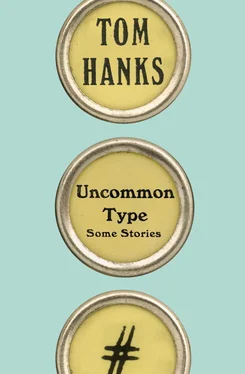“Sure,” she said to her son. “I’m flexible.”
—
She turned off the freeway, made a right at the Phillips 66 station, and continued down Sunset Avenue to Palmetto Street. She turned left on Palmetto to Derby Street, downshifted as she made the right turn, crossed Vista and Bush Streets, then pulled over and stopped in front of 4114.
Kenny had just two homes, and this was his first. He stared at it. The mailbox by the driveway was the same, the X-frame railing on the porch was as he remembered, but the tree in the front yard looked weirdly small. The lawn was mowed, he’d never seen the grass so neat, and flowers were planted in arrangements along the front of the house. They had never had flowers along the front of the house. The big window had blue curtains in it, not the white ones from when he was a kid. The garage door was closed, unlike when he lived there and it stayed open for easy access to all the bikes and toys and the back rooms of the house. Rather than his father’s old station wagon or his mother’s Corolla, a new Dodge Dart was parked in the driveway.
The Anhalters had lived next door. Kenny expected to see their white pickup truck, but it was not around. The house across the street had a For Sale sign in the front yard. “The Callendars are selling their house,” Kenny said.
“Looks like they’ve already moved,” his mother told him. Yes, the house looked empty. The Callendar kids, Brenda and Steve, were not twins but looked like they’d been born on the same day. They rode Schwinn bikes, had a dog named Biscuit, had been on a swimming team, and now lived somewhere else.
Kenny and his mom sat in the Fiat for a few minutes. Kenny looked at the window of what had once been his bedroom. The shutters with the moving slats were still there, but had been painted blue, like the living room curtains. The shutters had been a natural wood when he and Kirk slept in their twin beds in that bedroom. It didn’t seem right that they were now blue.
“I was born here, right, Mom?”
She was looking down the street, not at the house with the blue window shades. “You were born in the hospital.”
“Oh, I know that,” he said. “But I was a little baby here, right?”
His mother started the Fiat and put it into gear. “Yep,” she said over the growl of the motor. On the night she left the house at 4114 Derby, her children were asleep in their beds and their father was standing in the kitchen, silent. She did not see any of them again for seven weeks. Kenny was five years old.
By the time they had driven back to the apartment, she had smoked three of her long cigarettes, the smoke sailing away in the wind of the open-top sports car.
—
She took him to dinner at the Senator Hotel, which was downtown like the Leamington, but much fancier and crowded with men in suits who all wore name tags. They ate in the coffee shop. Jose Garcia stopped by to see them as Kenny was eating his dessert, a huge slice of cherry pie with ice cream on top of it—à la mode, the waitress called it. Kenny didn’t care too much for the cherries, but he finished every bite of the ice cream.
“What say we wheels up at noon?” Mr. Garcia said. “We’ll see the delta for a while then head up north. Have you ever been in a plane before, Kenny?”
He had already been asked that question but politely answered again. “Never.”
“You may just fall in love with the sky,” Mr. Garcia said. As he left, he kissed Kenny’s mom on the cheek. Kenny had never seen that happen in real life before, a man kissing a woman on the cheek. His dad never kissed Kenny’s stepmom like that, just because he was leaving the room. Kissing on the cheek was something men and women did on TV.
—
Jose Garcia took them to breakfast the next morning, to a coffee shop called Pancake Parade with a décor that made the place look like a circus. The two men ordered waffles and, for Kenny’s mom, another igloo of cottage cheese. As they were eating, car after car of well-dressed families came in, filling up the place. They were all in Sunday church clothes—the dads wore suits, the moms and girls were in nice dresses. Some of the boys wore neckties and were the same age as Kenny. With all those people talking and ordering breakfast the place sounded as loud as a circus.
When Jose and his mom finally finished their coffee—the waitress kept coming over and offering refills—Mom re-redded her lips and they went back out to the Fiat. Mr. Garcia drove, wearing a pair of gold metal-frame glasses with mirror lenses and hooks to go around his ears. His mom had on her skier’s shades. Kenny sat in the little area behind the seats, where the wind was the wildest and made it difficult to hear. For the whole ride, he never knew what the grown-ups were saying.
He had fun back there, though, sitting sideways and waving his hands up in the slipstream of the open top. They drove past solid brick houses with wide lawns and a huge green park with a golf course. They came to a place called Executive Field, which turned out to be an airport, but Jose did not use the parking lot. He drove around to a gate that opened and stopped by some small airplanes that were parked side by side.
“Ready to cheat fate, Ken?” Mr. Garcia said.
“Are we flying in one of those?” Kenny pointed to the planes. They were not like the model airplanes he had at home, which were from the war—fighters and a B-17 bomber. These planes were small and had no machine guns, and they did not look like they could go very fast, even though some had two motors.
“The Comanche,” Mr. Garcia said. He was walking toward a white plane with a red stripe, one of the single-engine aircraft.
The doors opened on the plane just like a car, and Mr. Garcia left them ajar to cool off the inside. Kenny got to stand on the wing and look inside, at the gauges and the dials and the steering wheel and the foot pedals. There were two of everything—plus some odd switches and controls that all looked very scientific. Mr. Garcia walked around the plane a few times, then looked at some papers he had folded into sleeves on one of the doors.
Kenny’s mom came from the car with the pink suitcase. “I think you want to ride up front, don’t you?” she said to him. She folded down one of the seats and climbed into the back, setting the pink case beside her.
“I get to sit here ?” Kenny meant behind the wheel, like the copilot.
“I need a copilot,” Mr. Garcia said. “Your mom’s shaky on the stick.” He laughed, then showed Kenny how to buckle his harness. Mr. Garcia had to pull the straps tight for him, though. Then he pulled a small pair of dark sunglasses out of his pocket and handed them to Kenny. “The sun is bright up there.”
The glasses were gold metal–framed like Mr. Garcia’s, but not nearly as expensive. They, too, had hooks that went around the ears. The sunglasses were oversize for Kenny’s almost-ten-year-old head, but he didn’t know that. He turned to show his mom how he looked. He gave her the thumbs-up and all of them laughed.
The starting of the engine was very loud, and not just because the Comanche’s doors were still open. The body of the plane shook and the propeller seemed to snap with each turn. Mr. Garcia worked switches and knobs and made the engine roar a few times. He put on a set of earphones and did something that got the plane moving even though the doors were still open. They passed other parked planes, then wide strips of grass where little signs with letters and numbers were planted. At one end of the long runway, the plane came to a stop. Mr. Garcia reached across Kenny and latched his door closed, then did the same to the door on his own side. The motor was still very loud, but the plane was not as wobbly.
Читать дальше











